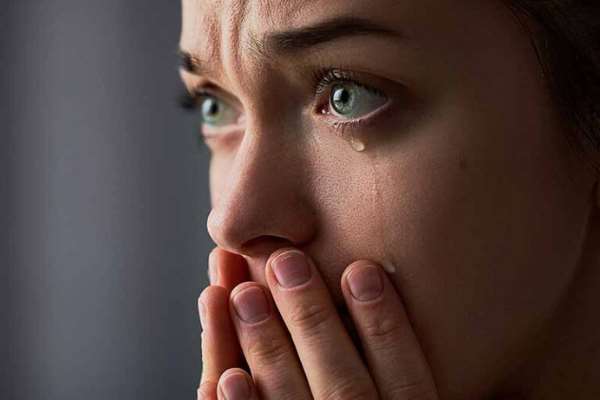Post-Traumatic Stress Disorder is a prevalent mental health issue that affects millions worldwide. It can develop after someone experiences or sees an extremely traumatic incident, such as a natural disaster, combat, sexual assault, or a life-threatening accident. The effects of PTSD can be substantial, hindering an individual’s ability to perform their usual tasks. Symptoms of PTSD can include flashbacks, nightmares, avoidance behaviour, and hyperarousal. The development of PTSD is not inevitable for everyone who experiences a traumatic incident. Therefore, a proper diagnosis is crucial for effective treatment, including therapy, medication, or a combination of both. In this article, let’s delve into the symptoms and diagnosis of PTSD. How it affects individuals, and the available treatment options. Understanding PTSD is the first step in addressing this mental health condition and helping those who are struggling with it.
What Is PTSD?
Post-traumatic stress disorder (PTSD) is a psychiatric disorder that may occur in people who have witnessed traumatic events in their past, like war veterans, rape victims, and find it difficult to forget about them even though time has passed by.
The traumatic events may include life-dangering, unfortunate incidents like a severe accident, a terrorist act, a natural disaster, war/combat, kidnapping, sexual assault, or even heinous crimes like rape, serious injury, or threatened death.
In simple terms, it is the inability to recover after experiencing or witnessing a terrifying event in the past.
Types of PTSD
There are three main types of PTSD: acute PTSD, chronic PTSD, complex PTSD and delayed-onset PTSD. Acute PTSD occurs within the first three months after the traumatic event, while chronic PTSD can last for more than three months. Delayed-onset PTSD can occur months or even years after the traumatic event.
What Causes Post-Traumatic Stress Disorder?
Post-traumatic stress disorder (PTSD) develops when a person is unable to process and move forward in their life after a very stressful, frightening, or distressing event or a prolonged traumatic experience from the past. These events may haunt a person long after they are over.
The percentage of PTSD occurring in people who have experienced such severe trauma in their past is around 33%. Let’s understand the reasons behind PTSD briefly.
– Some with a history of depression, panic attacks, anxiety, and other mental concerns may likely be prone to PTSD.
– A person experienced a traumatic event and did not receive adequate support from friends and family.
– Genetically vulnerable people will have an increased probability of developing PTSD, especially if one parent or both have mental health issues.
– PTSD can sometimes result from subconsciously protecting the person from future traumatic experiences.
– High levels of adrenaline produced in the body may trigger reactions as people with PTSD have abnormal levels of stress hormones.
– Research says the size of the hippocampus in the brain may be smaller in PTSD patients. Therefore, it may be because this particular part of the brain is related to fear, anxiety, memory issues and flashbacks.
Listed below are events that may lead a person to develop PTSD:
– Serious accidents
– Extreme disasters
– Physical assault
– Sexual assault
– Abuse
– Domestic abuse
– Exposure to heinous crimes
– Traumatic events at work
– Serious health issues
– Miscarriage
– Experienced warlike conflict
– Severe physical and mental torture
– Death of your loved one
What Are the Symptoms of PTSD And How Does It Affect You?
Post-traumatic stress disorder may disrupt your life in many different areas like thinking, behaviour, mental and physical health, work-life, family life, relationships, and other day-to-day activities.
PTSD may disrupt the person’s ability to work and perform his daily activities in various ways, including-
– Memory issues
– Lack of concentration
– Relationship conflicts with family members, friends, colleagues
– Fear
– Anxiety
– Emotional outbursts while at work
– Mood swings
– Flashbacks
– Increase the risk of other mental health disorders like depression
– Substance abuse
– Intense, disturbing thoughts and feelings related to that experience that last long after the traumatic event has ended
– Fear of they may relive the event through flashbacks
– Nightmares/sleep disorder
– Feel detached or estranged from other people.
The symptoms may be unbearable physically too, disturbed sleep along with hyperarousal and anxiety all create physical tension and stress, which can damage your health.
– Migraines
– Backaches
– Stomach aches
– Body aches
– Heightened reactivity to stimuli
The trauma of living in that moment, the constant fear that it will happen again. Thus, it takes away the precious present moments and joy from your life, making you feel low and maybe in a black hole.
How Is Post-Traumatic Stress Disorder Diagnosed?

The psychiatrist will usually assess and diagnose based on your history and prescribe medications (if needed) and therapy sessions. It is essential to attend the psychiatrist session with some written notes on past events/history or be accompanied by a trusted family member or friend who can describe the past events to ensure the psychiatrist can make an accurate diagnosis. You may want to get assessed if your anxiety and stress from your past event (over one month) continues to still numb you or disable your functioning in your daily life.
Sometimes you may start therapy without a diagnosis of PTSD. Your therapist or counsellor may refer you to a psychiatrist for further assessment. A counsellor or a psychotherapist is not competent to assess or diagnose. The psychiatrist or a psychologist usually makes assessments and diagnoses. Medication is prescribed by a psychiatrist only.
The perfect diagnosis of PTSD may need to explore the act event and the impact it has made on you, with an accurate understanding of the possible threat of death, violence, serious injury or the genesis of the trouble. It may include questions about how you experienced the traumatic event, either directly or as a witness or did someone narrate it to you.
How did all it start, and how were you involved in that situation? Psychotherapy techniques like EMDR (Eye movement desensitisation and reprocessing) are effective for PTSD. EMDR helps a person in a safe environment recall their past traumatic events and memories and process them through bilateral stimulation. EMDR facilitates alleviating affective distress. It works holistically with behaviour, thinking, feelings and physiological responses and helps to reprocess negative beliefs associated with the event.
Self-help strategies for managing PTSD symptoms
In addition to therapy, there are several self-help strategies that individuals with PTSD can use to manage their symptoms. These include learning relaxation techniques such as deep breathing and mindfulness, engaging in regular exercise, and maintaining a healthy diet.
Supporting a loved one with post-traumatic stress disorder
If you have a loved one with post-traumatic stress disorder, it is essential to offer them support and understanding. It is essential to motivate them to seek professional help and to provide a safe and supportive environment for them. Educate yourself about PTSD and its symptoms, and be patient and empathetic with your loved one.
Conclusion
It’s essential to conclude that not all who experience traumatic events develop PTSD. However, it’s natural for most of us to experience sadness, anger, anxiety, stress and other feelings after a disturbing event.
It may just be some painful thoughts that you couldn’t sleep last night, or it’s just a mild back pain because of the long-exhausted day you went through yesterday. It can be anything, so relax and give yourself another chance to overcome the moment if you cannot forget all that painful stuff after trying hard. So maybe it is the right time to consider getting an appointment with a mental health professional.











